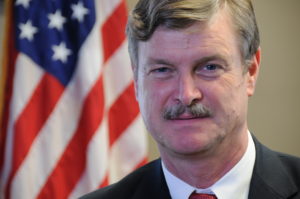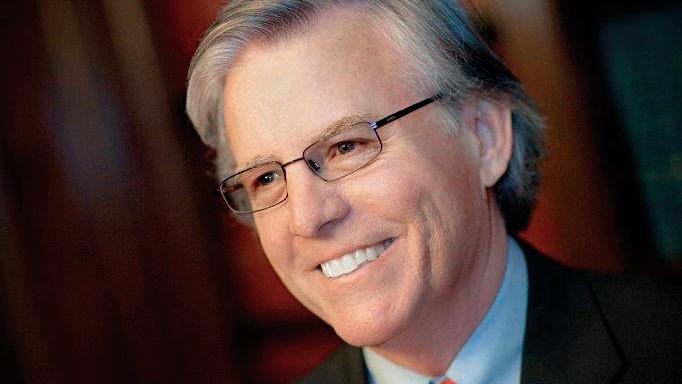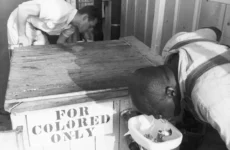Niagara Falls High School, home of the Wolverines, was the venue for a different type of event on Tuesday afternoon as Niagara Falls Mayor Paul Dyster gave the 2018 State of the City Address to a crowd filled with students, public officials, and residents.
Mayor Dyster touted Niagara Falls’ low crime rate.
“It is because of many Niagara Falls Police Department initiatives – too many to list them here – that we can announce the City’s crime rate is down 5%, robberies are down 10% over the past five years, and use of force incidents have continued to decline since 2014, for a total decrease of 53% over the past four years.”
Mayor Dyster added a small caveat, stating, “we got a long ways to go and even one gun-related incident is one too many, but those are some encouraging numbers and we hope to see those trends continue” over 2018. “If you see something,” he said, “say something. Drop us a line.”
Also notable was the time Mayor Dyster spent talking about Niagara Falls community development with respect to parks, which he stated “are a place for the community to gather., for neighbor to meet neighbor, and form friendships that can last a lifetime.”
“Your community development department,” he said, “is here to help make your ideas into reality, and we’ve had some wins already.”
From 2011 to 2017, “the City of Niagara Falls saw the completion of twenty-nine (29) specific parks or public facility improvement projects. We want to keep that number growing,” said the Mayor.
This year alone, “community development will be upgrading Liberty Park, adding basketball courts to both Hyde Park and Gill Creek Park in 2018, and adding a new inclusionary play area to the new Hyde Park playground.”
Along with highlighting the improvements made in the Downtown Corridor with respect to free public WiFi on Old Falls Street, Mayor Dyster spoke of the imminent development of Main Street after the second phase of the parkway removal project which kicks off this year from the Rainbow Bridge to Findlay Drive.
“The perception of Main Street has been bad for some time,” said Mayor Dyster, but “imagine a future main street aligned with restaurants and retail, apartments full millennial, public park space, and commercial work space. Now, more than ever, it is possible.”
Mayor Dyster also spoke about a future plan to focus on multiple strategic sites along the Buffalo Avenue waterfront corridor using Brownfield funds.
“We chose to focus on this area because if we don’t set up former industrial lands for redevelopment, your generation is going to run out of sites to develop. Recognizing this, the plan sets out strategic actions for re-imagining the entire Buffalo Avenue waterfront corridor for a new future, including new uses that are responsive to the market and to you community preferences. We will reclaim underutilized, vacant, and potentially contaminated parcels for productive reuse.”
Mayor Dyster concluded by stating that, “we do not inherit the earth from our ancestors, we borrow it from our children.”





















